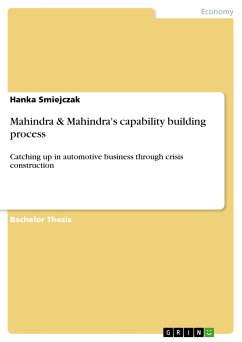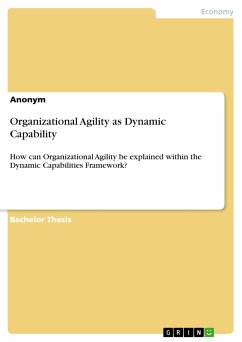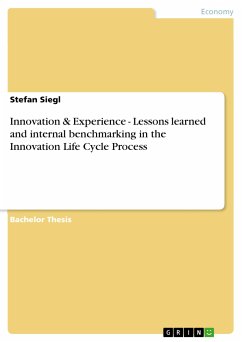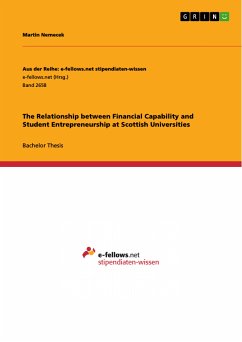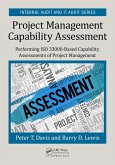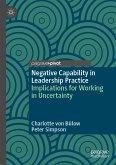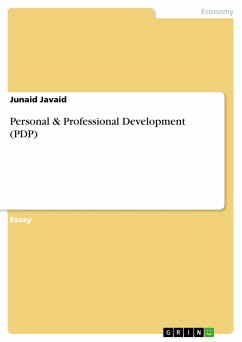Bachelor Thesis from the year 2011 in the subject Business economics - Business Management, Corporate Governance, grade: 1,0, Berlin School of Economics and Law, course: International Business Management, language: English, abstract: This case study research on the Indian automobile company Mahindra & Mahindra adds to the debate on latecomer companies from emerging markets. It investigates the model of "crisis construction¿, which has been introduced by Linsu Kim, as an effective means for catching up. An extensive research in journal and newspaper articles, annual reports and further company publications forms the basis of this study. In addition, three expert interviews were conducted to give a comprehensive and in-depth view of the four development phases between 1990 and 2010. These four phases describe the corporate development over time in aspects of technological catch up, internationalization and organizational learning. One result of this study is that Kim¿s proposed model can be applied to other companies in other business environments successfully. In addition, this paper suggests approaches of how to better classify events as "constructed crises¿, how to better identify means of overcoming these crises and how to better evaluate the outcome of these crises. As a final part, this case study research gives explanations as to why "crisis construction¿ is not applicable for pioneering and proposes an alteration of Linsu Kim¿s linear learning model.
Dieser Download kann aus rechtlichen Gründen nur mit Rechnungsadresse in A, B, BG, CY, CZ, D, DK, EW, E, FIN, F, GR, HR, H, IRL, I, LT, L, LR, M, NL, PL, P, R, S, SLO, SK ausgeliefert werden.

